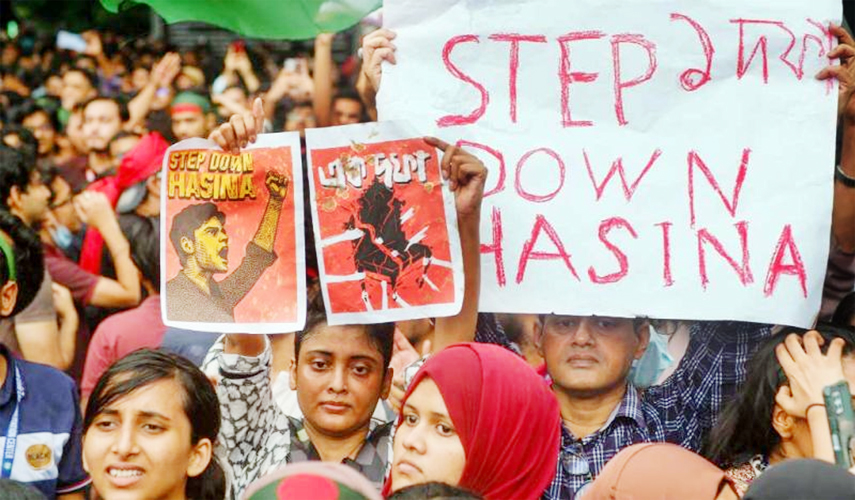Dr. Md Asadul Islam and Dr. Ariful Islam :
“There is no health without mental health,” as former US Surgeon General David Satcher famously stated, and this holds true for people of all generations. Gen Zers, ranging from ages 12 to 27 in 2024, are unique in this sense because the vast majority is going through a critical stage of development. Generation Z grew up with cell phones, embraced Instagram before starting high school, and cannot recall a time before the internet. Concerningly, a recent multi-year study (The Annie E. Casey Foundation, 2023) revealed that nearly two-thirds (65 per cent) of Gen Zers reported experiencing at least one mental health problem in the past two years. According to the King’s College London Report (2023), 91 per cent of Gen Z reported experiencing physical or emotional symptoms of stress, such as depression and feeling overwhelmed. A new term, “Gen Z-stressed,” has emerged in response to the rising prevalence of stress, anxiety, and mental health challenges reported among Gen Zers.
According to the APA Survey Report (2023), 75 per cent of Gen Zers report that mass shootings are a significant source of stress, while 64 per cent cite money and work-related pressures as major stressors. Additionally, 62 per cent identify the political climate as a significant stressor, and over two-thirds (69 per cent) express concern about the nation’s future. The COVID-19 pandemic has further exacerbated these issues, with over 60 per cent of Gen Z reporting concerns about it and nearly half experiencing heightened anxiety or depression. In the context of university education, this “Gen Z-stressed” phenomenon is critical to consider because Gen Z students face academic environments that are increasingly competitive and digitally mediated. The integration of social media or advanced technology into daily life has added layers of complexity, leading to greater risks of cyberbullying, comparison-driven anxiety, and sleep deprivation.
The “Gen Z-stressed” phenomenon significantly impacts university classrooms, manifesting as decreased attendance, disengagement, and heightened mental health struggles among students. Financial pressures, cited as major stressors for Gen Z, often force students to juggle academics and part-time jobs, leading to burnout and dropout rates. Social media dependency and comparison culture contribute to anxiety, disrupting group work and collaborative learning. Additionally, mental health issues like anxiety and depression-amplified by the pandemic-result in increased requests for accommodations and reduced participation in interactive learning. These challenges highlight the urgent need for universities to adopt effective mental health initiatives and flexible learning models to foster a supportive educational environment.
“Research has consistently shown that mental health challenges are associated with lower academic performance,” explains Diana Cusumano, LMHC, Director of JED Campus and Wellness Initiatives. Stress issues increase the likelihood that university students may miss class, fail some exams, or miss assignments, and can make it harder for pupils to follow university outlines. Admission to prestigious institutions like Dhaka University or BUET is highly competitive, and once enrolled, students often face immense academic pressure that can lead to burnout, anxiety, or even withdrawal from programs. Moreover, the lack of adequate support systems in most Bangladeshi universities exacerbates the mental health crisis. Counselling services are scarce, and the pervasive stigma around mental health deters students from seeking help. The lockdown during the pandemic intensified these issues, with university students struggling to adapt to online learning amidst poor internet connectivity and technological challenges. A study by BRAC University revealed that a significant portion of students experience moderate to severe anxiety and depression, directly affecting their academic engagement and overall well-being. Prolonged isolation and uncertainty about their future have only deepened this crisis, highlighting the urgent need for institutional interventions.
To effectively address the rising mental health concerns among Gen Z university students, institutions must adopt a multi-pronged approach. The “PEACE” model provides a framework for creating a supportive and stress-reducing environment.
· Psychological Support: Robust mental health services are crucial. This includes easily accessible hotlines, in-person counseling, and virtual therapy options. Regular monitoring of service utilization and student feedback is essential to ensure effectiveness.
· Education Flexibility: Offering flexible learning options, such as hybrid courses and online exams, empowers students to balance academic demands with personal needs. Tracking student engagement and performance in these flexible models provides valuable data for continuous improvement.
· Awareness and Training: Workshops on mindfulness, time management, and resilience-building techniques equip students with valuable coping mechanisms. Pre- and post-workshop surveys can assess the effectiveness of these programs and identify areas for improvement.
· Community Building: Peer mentoring programs foster a strong sense of community and provide valuable support networks. By connecting senior and junior students, these programs can improve emotional resilience and create a more supportive learning environment.
· Environment and Infrastructure: A conducive learning environment is vital. This includes ensuring access to quiet study spaces, reliable Wi-Fi, and comfortable relaxation areas. Regular surveys can gauge student satisfaction with these aspects and inform improvements to the campus infrastructure.
The PEACE model is uniquely suited to managing Gen Z stress in Bangladeshi universities because it integrates culturally relevant strategies like peer mentoring and flexible learning options, addressing both academic pressures and societal stigma surrounding mental health. Its holistic approach-targeting psychological, educational, and environmental factors- ensures that student well-being is supported across multiple dimensions, making it a comprehensive solution for the challenges faced in this context. However, we must not forget that the most damaging psychological effect, both on an individual and societal level, of prolonged and widespread social stress is a sense of hopelessness and helplessness. And it’s dangerously easy to fall into those emotional states.
(Dr. Md Asadul Islam is a Senior Lecturer and Dr. Ariful Islam is a lecturer at Sunway University, Malaysia).



